Wednesday, October 29, 2025 at noon in Fisk 413. Lunch provided. Please join us!
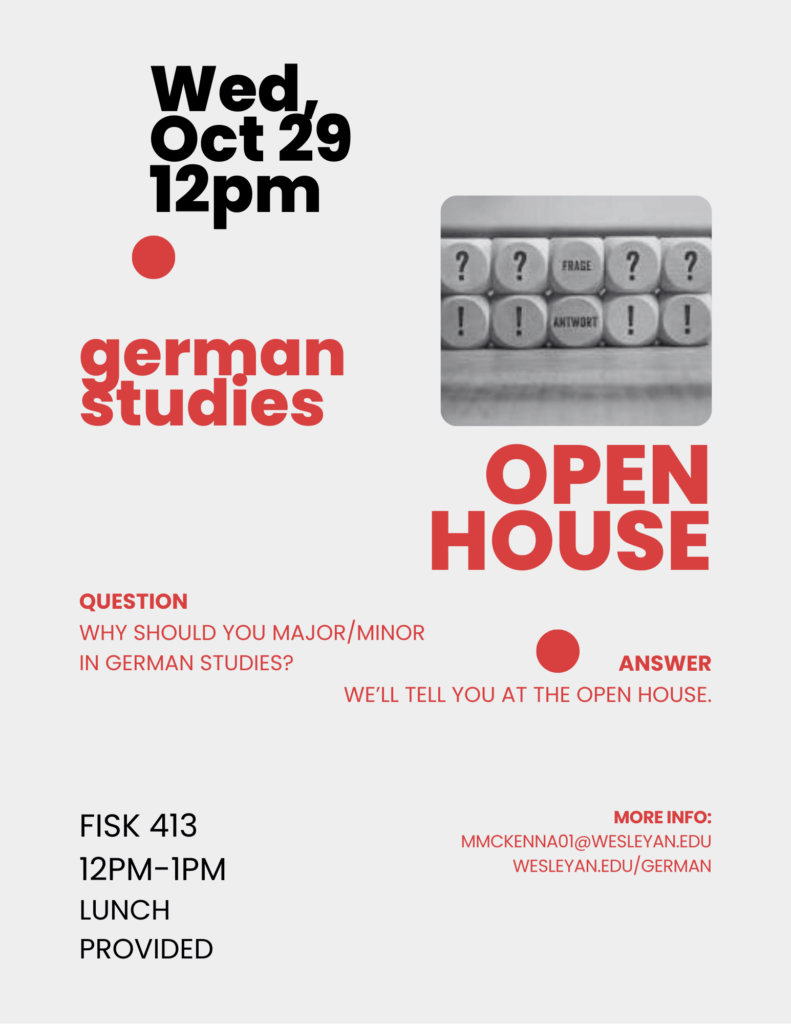
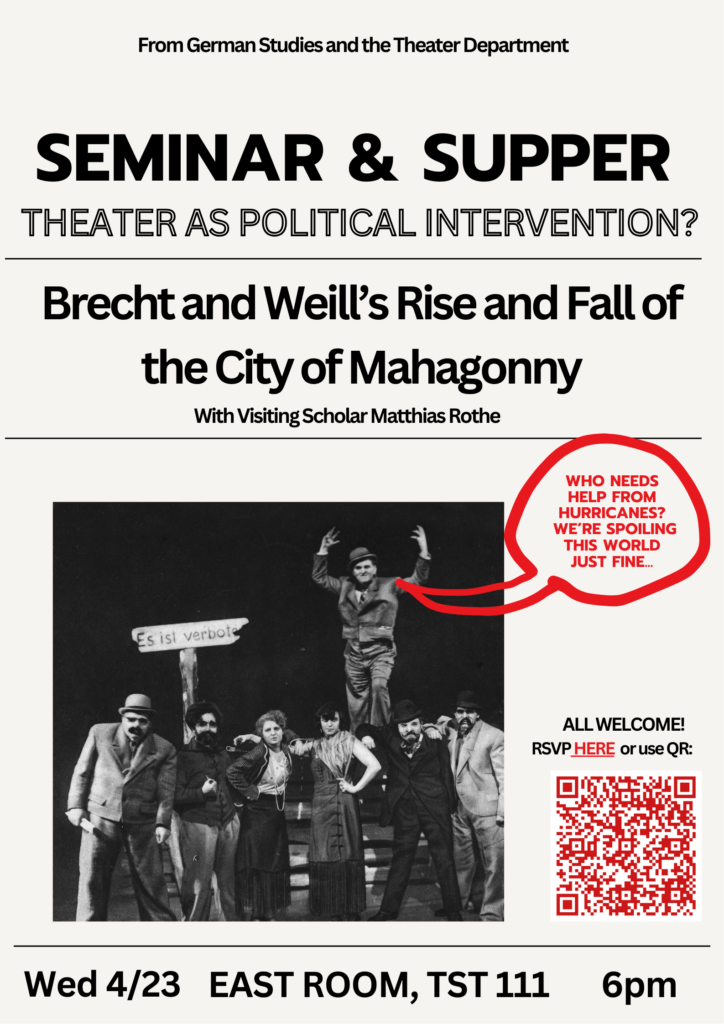
The premiere of Bertolt Brecht and Kurt Weill’s Rise and Fall of the City of Mahagonny in 1930 in Leipzig, Germany, at a time of heightened political tensions and National Socialism on the rise, turned into one of Germany’s biggest theater scandals. It was interrupted by brawls and outrage; it became the subject of discussion in parliament and had extensive nationwide press coverage. In a nutshell: A small group of left theater makers had successfully staged a political intervention. Which strategies and forms of collaboration did those involved – musicians, directors, stage designers, actors– pursue to make this happen? And most importantly, what did they want to make imaginable by their collaborative work on rehearsal and performance? What utopian potential did they seek to unlock? Matthias Rothe investigates these questions in his recent book Tropen des Kollektiven (Tropes of Collectivity). You are invited to join a seminar with him, exploring – with the example of Mahagonny – the power and limits of political theater at the end of the Weimar Republic and its lessons for today.
Matthias Rothe is Associate Professor of German Studies and Philosophy at the University of Minnesota, Twin Cities. He works on modern German literature, Avantgarde Theater, and Marxism, among other topics. Recent publications include: “Economic Psychos: Volker Braun’s Das ungezwungene Leben Kasts after Bret Easton Ellis”, in Text und Kritik 55 (2023); “‘Roundheads and Pointed Heads or the End of Avant-Garde”, in Brecht Yearbook 48 (2023); and his book Tropen des Kollektiven [Tropes of Collectivity], published by Theater der Zeit in 2024.
Click here for RSVP. The readings can be found here.
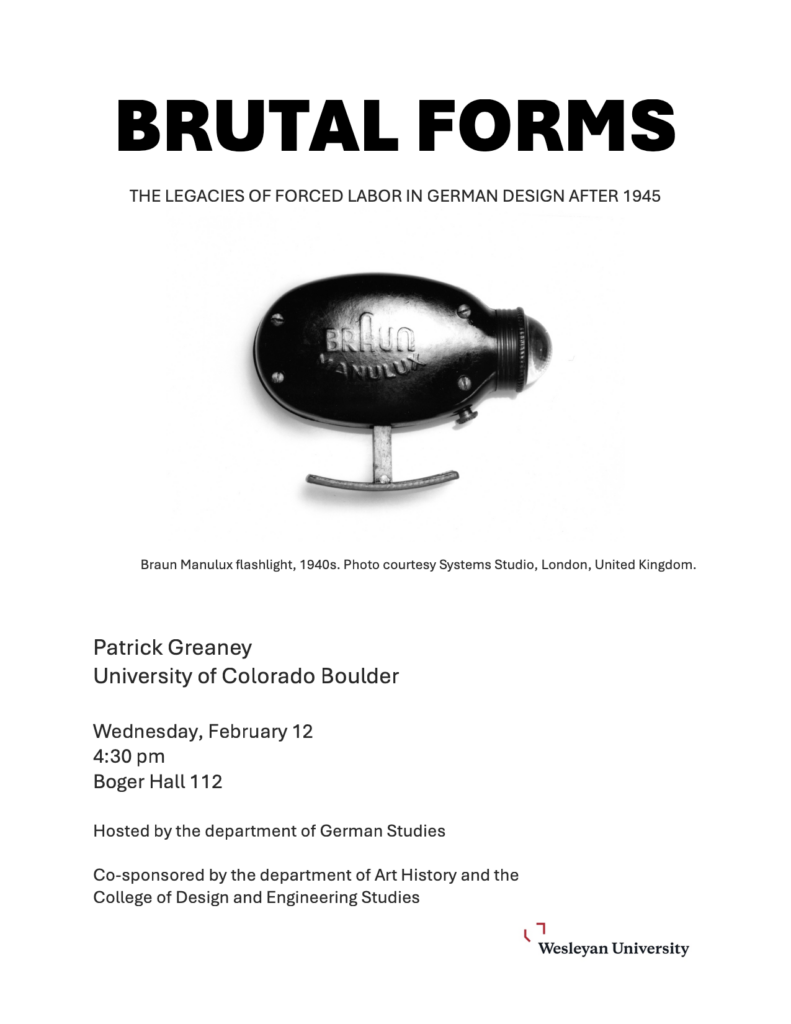
The German company Braun was founded in 1921 and became internationally prominent in the 1950s for its products designed in collaboration with Bauhaus alumni and the Ulm School of Design. Its radios, record players, and household appliances epitomized West Germany’s embrace of functionalism and quickly entered museum collections in Europe and the United States. This talk will examine the origins of Braun’s 1950s product designs in the National Socialist era and consider in particular the company’s indebtedness to forced labor.
Patrick Greaney is Professor of German and Humanities at University of Colorado Boulder. He is the author of Quotational Practices: Repeating the Future in Contemporary Art (2014) and Untimely Beggar: Poverty and Power from Baudelaire to Benjamin (2008). He has edited or co-edited six books, including An Austrian Avant-Garde (2020)and Conceptualism and Other Fictions: The Collected Writings of Eduardo Costa, 1965-2015 (2016), and his most recent literary translations and co-translations are Heimrad Bäcker’s Documentary Poetry (2024) and Carlos Soto Román’s 11 (2023)
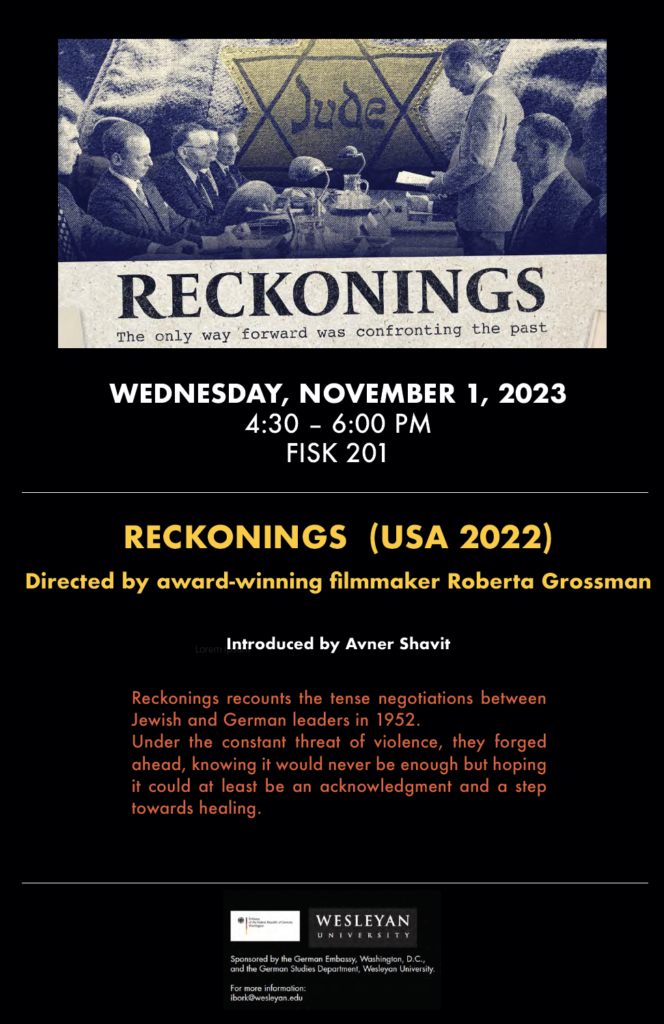
For more information please click HERE.
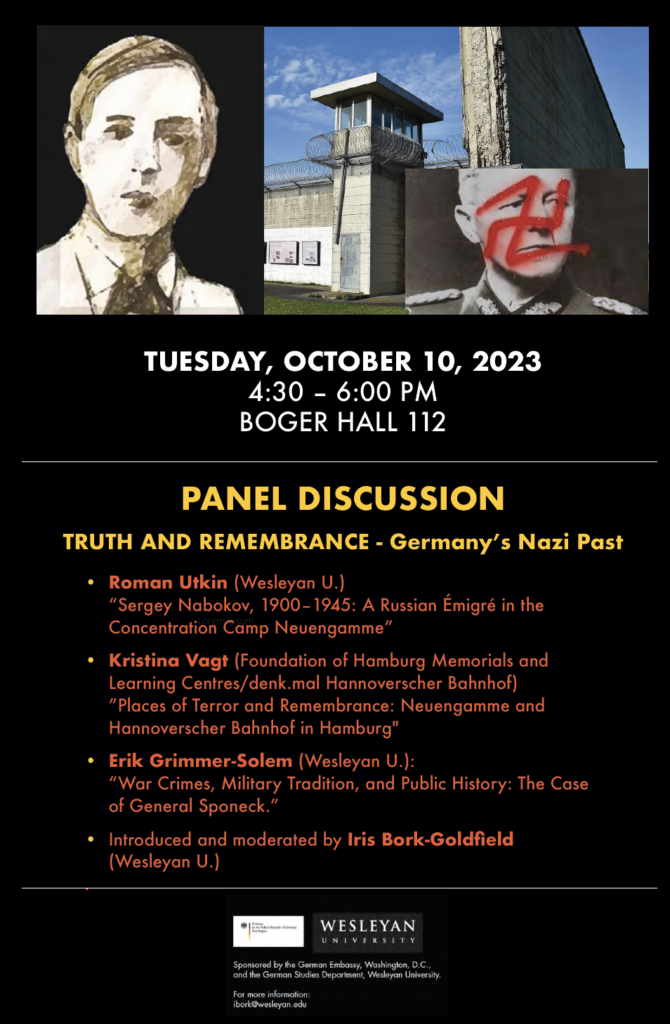
Roman Utkin: “Sergey Nabokov, 1900–1945: A Russian Émigré in the Concentration Camp Neuengamme”
Kristina Vagt (Foundation of Hamburg Memorials and Learning Centers/denk.mal Hannoverscher Bahnhof) “Places of Terror and Remembrance: Neuengamme and Hannoverscher Bahnhof in Hamburg”
Erik Grimmer-Solem “War Crimes, Military Tradition, and Public History: The Case of General Sponeck.”
Introduced and moderated by Iris Bork-Goldfield
Roman Utkin will talk about Sergey Nabokov. While the writer Vladimir Nabokov plays a central role in Russian cultural history, the Russian émigré Sergey Nabokov is merely a footnote to that history: a famous writer’s gay brother. Three facts of Sergey’s biography are invoked whenever his name is mentioned: he was gay, he had a bad stammer, and he died in a Nazi concentration camp in 1945. In the 1930s, Sergey lived with his life partner, Hermann Thieme, in Austria, where both were charged with violations of Paragraph 175 and imprisoned following the Anschluss. Hermann was sent to a penal colony in Africa. Sergey was initially released but then rearrested in Berlin in 1944 and ended his days in the concentration camp Neuengamme. The reconstruction of Sergey’s biography offers an invaluable glimpse into conceptions of a queer exile in interwar and wartime Europe.
Kristina Vagt will talk about the concentration camp in Neuengamme, a suburb of Hamburg, which—in the early summer of 1940—became the main concentration camp in northwest Germany until 1945. For many decades, Neuengamme faded from public memory. The Neuengamme Concentration Camp Memorial was inaugurated in May 2005 on the 60th anniversary of the camp’s liberation. Today, the Memorial encompasses virtually the entire grounds and 17 original buildings of the former concentration camp. Measuring about 141 acres (57 hectares), it is one of the largest memorials in Germany. It is a site for remembering and learning that preserves the memory of the victims of SS terror while also providing opportunities to explore the causes and consequences of the Nazi regime. In addition, Kristina will introduce the audience to Denkmal Hannoversche Bahnhof, the place from which Jews, Sinti, and Roma in Hamburg were deported to Auschwitz, Riga, Theresienstadt, and other concentration camps.
Erik Grimmer-Solem will be talking about General Hans von Sponeck and the memorials that were dedicated to him in Cold War West Germany. Long associated with the military resistance to Hitler because of his court martial in 1942 and execution by the SS in July 1944, von Sponeck is the subject of Prof. Grimmer-Solem’s historical research revealing involvement in significant war crimes and crimes against humanity during the invasion of the Soviet Union in 1942. These findings were published in the Militärgeschichtliche Zeitschrift and discussed extensively in the German news media and in the Bundestag in 2014-15. As a result, the “General-Hans-Graf-Sponeck-Kaserne” in Germersheim was formally renamed “Südpfalz-Kaserne,” and memorials to the general in Germersheim and Bremen were changed or removed. This episode raises important questions about the relationship between history and public monuments as well as the problem of what to do with monuments that are incomplete, misleading or inaccurate.